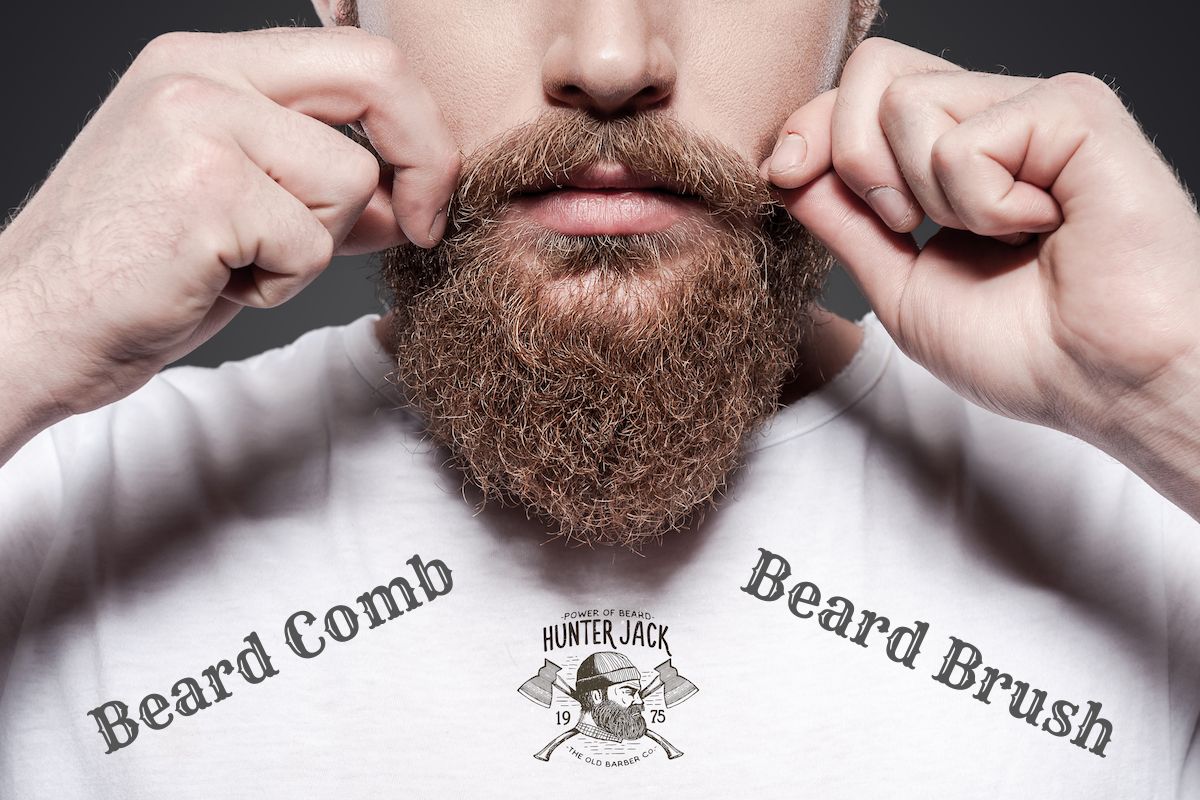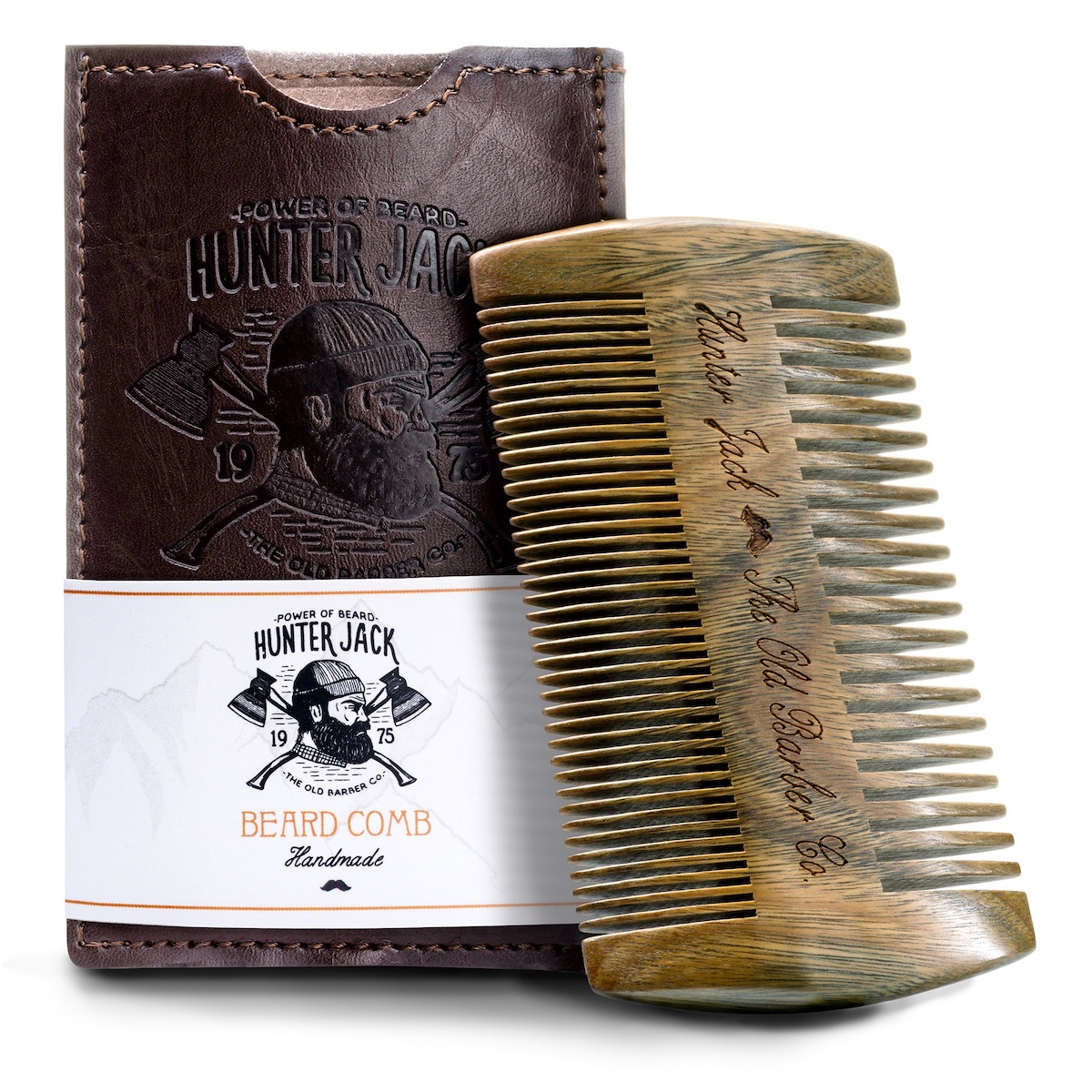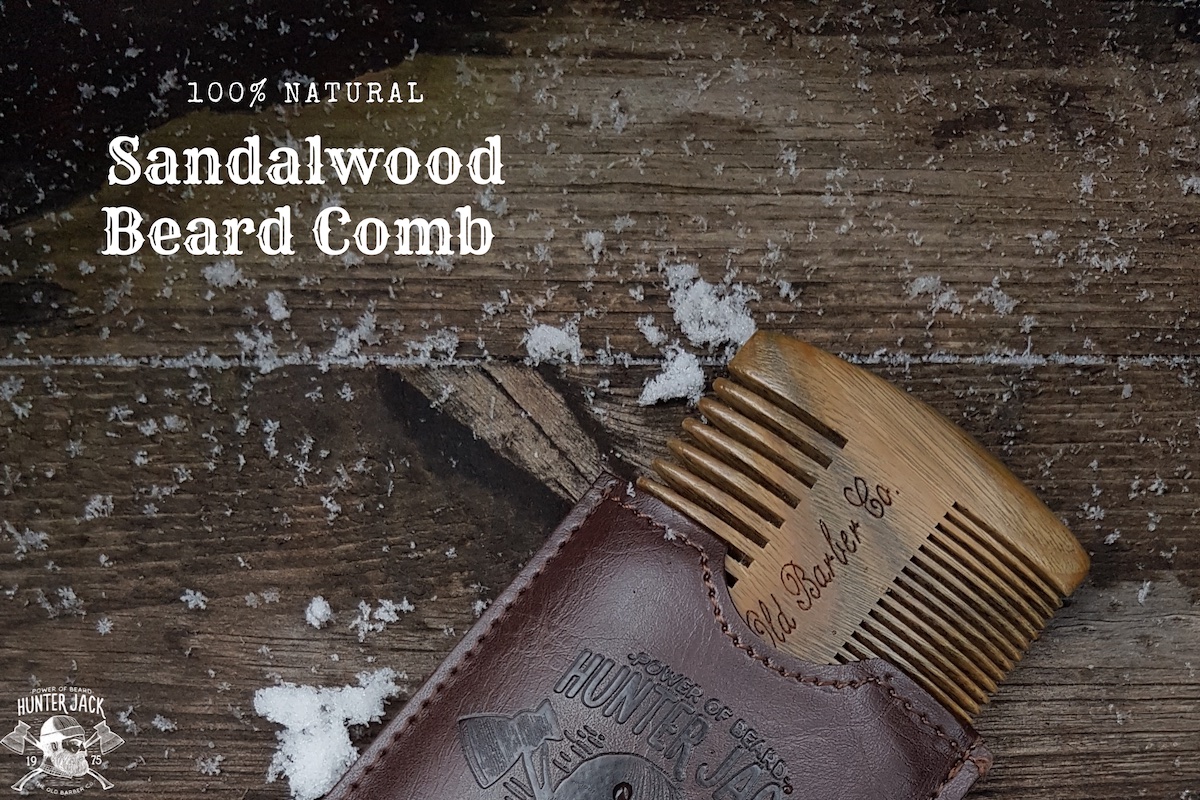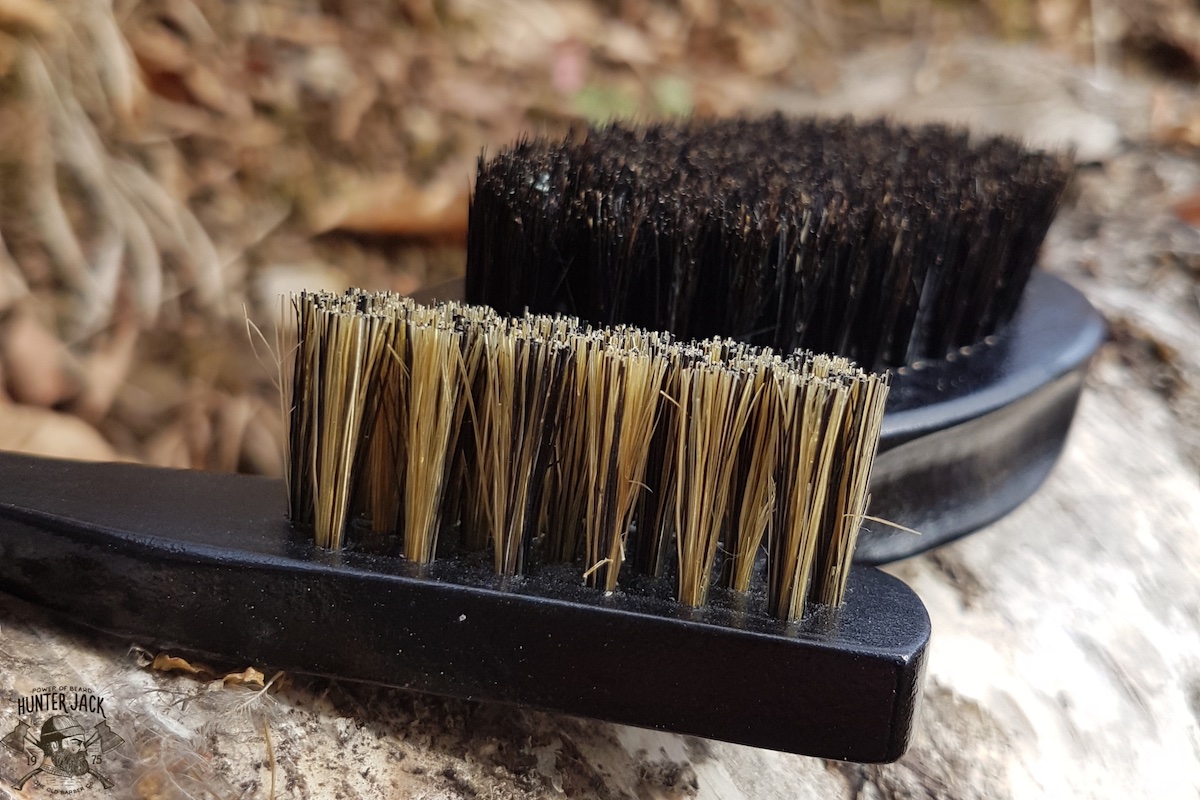Florida City, Florida, June 5, 2023, ZEXPRWIRE, Once you step into the beard-growing pass, you’ll open a whole new world literally in front of your nose. A beard comb is one of the most essential tools in every bearded man’s arsenal. Beard combs come in various shapes, sizes, and materials. Using a beard comb is, without any exaggeration, a sophisticated art, which requires both knowledge and practice.

Hunter Jack Barberco, a leading innovator in men’s beard grooming products, proudly unveils Hunter Jack’s Premium Sandalwood Beard Comb, setting a new standard in beard grooming and maintenance. Read on for more details about the product and how it compares to another popular tool from the company – the Boar Bristle Beard Brush.
What is a beard comb?The simplest definition of a beard comb states that it’s a specialized comb used for grooming a beard. It is worth noting, though, that combing your beard hair in the same way as you comb your head hair won’t bring you the desired outcome. The key word in our definition above is “specialized”.
A beard comb is a beard grooming tool whose main function is combing beard hair. Yes, one can use it for combing head hair too, but its shape and size make it not the best choice for that purpose. Whereas, a specialized beard comb is an ideal tool for beards of all shapes and lengths. It may come with small or large teeth sizes (often, with both on opposing sides), have different shapes and body sizes, and be made of various materials, including wood, plastic, or metal.

Types of beard combs: plastic vs. wooden vs. metal combs
- Plastic beard comb. Plastic is a widely-used material when it comes to small beauty and grooming tools. Over half of all beard combs are made of plastic. It is cheap and its production methods allow for the existence of various forms and shapes of plastic beard combs.
- Wooden beard comb. Wooden beard combs are regaining respect and popularity in recent decades, since wood as a material is more eco-friendly than plastic. Also, handling a wooden comb gives that additional pleasant sense of touch, which no plastic or metal tool can give. A wooden comb is our absolute favorite among the three.
- Metal beard comb. A metal beard comb can give you a premium look and feel, if you truly enjoy things made of metal. Most often, such combs are made of aluminum or stainless steel, and their main selling point is durability.
- Comparing beard comb materials. As mentioned, plastic is affordable and widely spread. You can come to the first hair accessories shop in your vicinity and most certainly find a variety of plastic beard combs there. Beware, though, that plastic is prone to breaking and produces static charges, while wood, for example, is antistatic.
Find Hunter Jack’s Sandalwood Beard Comb on Amazon!
Benefits of using a beard comb
| Benefits | Description |
| Softer beard hair | Just like head hair, your beard hair requires daily combing. By combing your beard at least once a day, you’ll make your beard hair softer and look tidier. The longer beard you have, the longer the combing process may be to achieve the same outcome. |
| Tangle-free beard | For those with medium and long beard hair, tangles and snags are a common problem. A good wooden comb with just a few gentle moves can untangle the knots in your beard and make it look healthier and stylish. Tangle-free beard hair is not prone to breaking. |
| Distributes natural oils | Oils are used on beards to avoid unhealthy-looking beard hair, with split ends, overly dry (also pertains to the face skin), etc. A good quality sandalwood comb can make the application of beard oils, creams, butters, balms, and lotions effective and natural. |
| Healthy beard growth | Your beard hair will benefit from regular “training” with a comb. Combing helps to avoid frizzy hair, which is often the case with medium and long beards. With a comb, you can make your hair grow in a particular direction and look stylish as opposed to a wild-looking beard. |
How to choose the right beard comb for your needs
- Beard comb size. Beard combs come in various sizes; however, the average length varies from 3 to 4 inches, and the width ranges from 1 to 2 inches. Always choose the size that fits your needs (home, work, travel) and individual preferences.
- Tooth spacing. Most of the combs on the market have two sides with different teeth sizes and spaces between the teeth. For a dense and long beard, you may want to consider using a comb with thinner teeth and more spacing between those.
- Material preference. With all other conditions equal, we would always advise going for a wooden beard comb, as it is antistatic, which is not the case with plastic combs, and is less likely to scratch and damage your skin. Wood, in particular sandalwood, as a material is more eco-friendly and gives warm tactile sensations to your hands and face.
- Personal grooming routine. If you are new to beard grooming, we’d advise you to make a habit of combing your beard hair at least once a day. Once you get used to it, you may want to introduce a second grooming session into your routine.
Tips for using a beard comb effectively
Always comb in the direction of growth, as this will make your beard look natural. For those who have short beards, running a comb through once or twice in the same direction should do the job. However, if you are a proud owner of a long beard, you may need to apply more effort. At first, start at the bottom of the beard and move your comb slowly upward (use a light touch). Then begin combing with several more pronounced strokes in the desired direction of hair growth.
For effective combing, divide your beard into sections and layers – this will help to move through your beard efficiently and ensure that no blind spots are left behind. At first, this may look like adding complexity to your routine, but believe us – very soon it will become an intuitive combing pattern you’ll enjoy doing by heart!
Another very important beard comb efficiency tip – use with beard oil or balm. Your beard hair requires oils and balms to grow and stay healthy. A sandalwood comb is the best tool for this purpose, as the chemicals present in this type of wood exhibit antiseptic properties on your hair and skin.
Common mistakes to avoid when using a beard comb
- Over-combing. Some newcomers to the art of beard grooming tend to overdo everything they’ve learned. Over-combing is one such mistake. The most common and dangerous signs to be aware of are irritated facial skin, hair loss, and even harder-to-notice split ends. Be sure not to cause any of those by over-treating your beard hair.
- Using a dirty comb. This one is pretty straightforward: a dirty comb is similar to dirty hands – it is a source of irritation to one’s skin, which often leads to inflammation and infections. Both can translate into additional (and unnecessary!) investment in special soothing balms and cleansing lotions.
- Combing too aggressively. Fast and aggressive combing may be tolerated by short and healthy beards, however, for long and sensitive ones an overly aggressive combing can lead to hair loss and, again, infections to your skin.
- Combing against the grain. By combing against the grain, you will make your beard look fluffy, to say the least. If this mistake is repeated often, you are risking losing patches of your beard hair. The beard will look untidy and wild – which hardly suits any gentlemen’s style.
Discover Premium Sandalwood Beard Comb offered by Hunter Jack made of 100% natural material for ultimate beard and mustache care.
How often should you comb your beard?
A fast answer to this question may look straightforward – comb your beard at least once or ideally twice a day. Daily beard combing suits most men’s habits and beard styles. However, as you’ll progress on your beard grooming journey, you’ll learn to take a more customized approach.
Just like every person is different, every beard is unique too. Beards may vary in health condition, thickness and length of hair. A person wearing a beard may also have weak or strong health, live in an overly cold, dry, or wet climate, and have their own hair grooming habits. Depending on beard length and texture, one may benefit more from every other day beard combing, or even combing two or three times a week.
On the contrary, others may need to comb their beards more often, e.g., three times a day. Those would be the owners of long beards with a tendency towards frizzy hair. Avoiding over-combing is especially essential in this case, as damage done to a long-grown beard takes a painfully long time to repair.
Also, a normal beard hair has its natural oils, which will be removed by excessive combing. This will cause dryness, making hair easier to break and leading to slow hair growth by damaging follicles.

How to clean and maintain your beard comb
Personal care devices require periodic maintenance. A beard comb is not an exception. Regular cleaning with soap and water will help you to keep your beard hair and facial skin away from microbes and irritation. Such cleaning doesn’t take much time and can be a part of your daily grooming routine.
Occasionally, you may need to consider using a brush to remove debris, as simple cleaning with soap and water cannot remove all the dirt from hard-to-reach places between the comb teeth. The brushing procedure doesn’t have to be done as often as rinsing with water, perhaps once in two weeks will suffice.
Consider the above-mentioned regular maintenance for longevity and extending the lifespan of your comb and its protective case, if you have one. By the way, storing properly to prevent damage is one of the key functions of a good case, that’s why we strongly advise any bearded man to consider pairing their comb with a practical and sturdy case.

Hunter Jack’s Sandalwood Beard Comb can be easily cleaned and maintained, making it the best option for you beard. However, it is not the only tool you can use to take care of your facial hair.
Beard comb vs. beard brush: which is better?
Comparing beard combs and brushes
Beard combs and brushes are often used in combination to maintain a healthy and stylish beard. Brushes also come made of natural (wood and natural hair) and artificial materials. As a rule, for short beards, using a comb alone may be enough.
Differences in use and effectivenessBeard combs are more universal tools than brushes. They suit all beard types: long, short, thin, and thick. Besides, combs can also be used for head hair and mustache. Beard brushes, on the other hand, are superior when it comes to applying oils and balms.
Choosing the right tool for your needsWhen choosing among the two, consider your beard type, your skin condition, the goals you want to achieve in growing a beard, etc. An amazing-looking and highly practical wooden comb made of sandalwood may be the only tool you’ll ever need!
Combination of using both a comb and brushConsider the comb as a coarse and the brush as a fine instrument. First, you need to do the coarse work and then finish with a fine and gentle touch. Here is the way to combine the two: a good beard comb and a natural hair beard brush.
If you are looking for a full beard care experience, you should also consider getting yourself a genuine Hunter Jack’s Boar Bristle Beard Brush.
FAQ
How often should I use a beard comb?Use it not less than once, but ideally twice a day.
How do I choose the right beard comb for my beard type?Choose the beard comb, which has different size teeth and spacing between them.
Can I use a regular comb on my beard?Yes, regular combs are designed to suit most beard types.
How do I clean and maintain my beard comb?Rinse it with water and wash it with soap. Use a brush to clean dirt between the teeth.
Can using a beard comb help with beard growth?By combing your beard regularly, you’ll nourish and encourage your beard to grow faster.
Conclusion
Maintaining one’s beard in great shape is both a science and a dedicated work. In every bearded man’s world, a beard comb is a must-have tool. We are hopeful that the current guide will help you quickly find the perfect comb and use it to its full potential straight away!